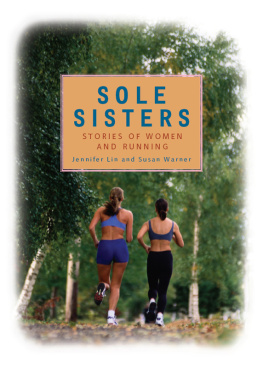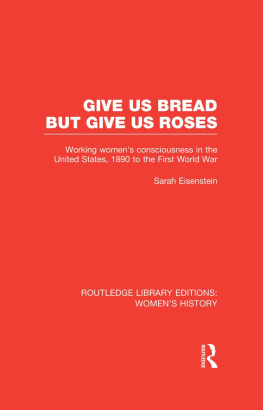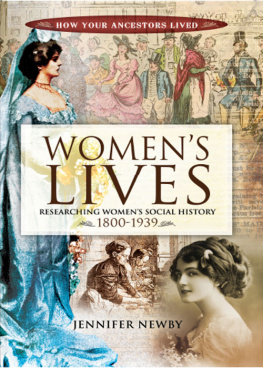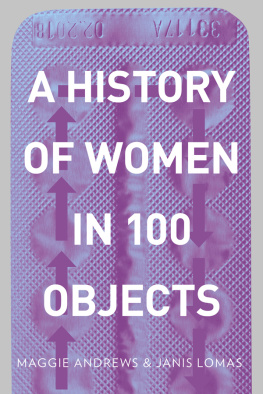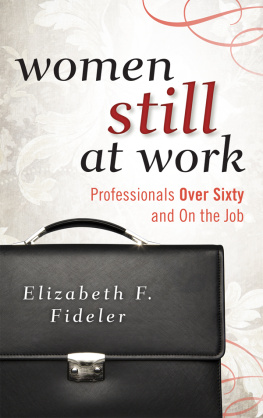.........................................
Would sleep ever come? As she lay awake, Joe sound asleep beside her, Phyllis replayed her last few months on the job. It had all started, she thought, when Michael, her boss, quit his job at the supermarket. The new guy who replaced him had been baiting her for months now, harassing her when her speed dropped, forcing her to check with the office every time a decision had to be made, giving her the lousy shifts and break times no one else wanted. What had she done to annoy him? True, she was a bit mouthy, and she'd let him know what she thought of his stupid changes, but so what? Michael had liked her inputand he'd liked her too. This guy seemed to hate her.
And now, by switching shifts with Mary so she could go to her son's game tomorrow, she was about to hand him exactly what he wanted: an excuse to give her a hard time. He'd slap her with a notice, for sure, her second since he came on board six months ago. Just as well she had some new job options. Maybe now she could quit before she was fired. She was never going to make full-time staff anyway, and she was fed up with being treated like a childa stupid child at that.
In any case, she had no choice. If she missed the game after promising she'd go, how could she look her son in the eye? How could she expect him to trust her? Well, whatever happened, she was not about to miss that game.
Ann had been thinking a lot lately and she had to admit her thoughts were not pretty. In fact, she was downright depressed. Jack and the kids accused her of being moody, and, to be honest, they were right. But here she was, still doing the same things she had been doing for twenty years and did anyone notice? Or care? Maybe it was just menopause: don't women get more cranky and men more laid back as they get older? That fit her and Jack, that's for sure. Sometimes she wished she could go off by herselfjust to think about what she was doing with her life. As if there were time! With her own four kids and two grandkids all at home, not to mention her job, thinking was a luxury she couldn't afford.
Maybe she was just tiredat work, tired of being called a bitch by customers and having returns thrown in her face, and at home, tired of wiping up the same spills on the same floors and complaining about the same careless clutter, day after day. She was tired of daughters who expected her to raise their kids, and sons who expected her to pay their way. She was tired even of herself and of all the mistakes she'd made, since way back when. Why hadn't she gone to a regular high school, for example? Why hadn't she listened when her father said a commercial school was a waste of time? Why did that have to be the only battle with him she'd ever won? If only she had lost that fight, she'd be a professional now, not just a working person. She would not be sitting here behind a customer service counter dealing with the negative attitudes and nasty dispositions of people who thought they could treat her like dirt.
Of course, it wasn't all bad. She liked her job. It was like family. Monday mornings everyone asked how the kids were, and did she have a good weekend? Time off was no big deal. Really, it was a good job. It just wasn't where she'd like to be at this stage of her life. That's all.
Phyllis and Ann are two of sixty-three working-class women whose thoughts, feelings, and experiences of work and family are explored in this book. All but six of these women had remained solidly working class throughout their lives and now at midlife were employed in working-class jobsas grocery store cashiers, assembly-line workers, school bus drivers, secretaries, clerks, cleaners, and cooksmarried to working-class men, and living in poor, working- or lower-middle-class neighborhoods. Also in the book, for purposes of comparison, are eighteen middle-class women whose origins were middle or upper middle class. These women were married to middle-class men, lived in middle- or upper-middle-class neighborhoods and, with one exception, worked in professional or managerial jobs, as teachers, social workers, attorneys, physicians, and entrepreneurs. The book uses the experiences of these two groups of women to explore the difference social class makes in women's lives.




